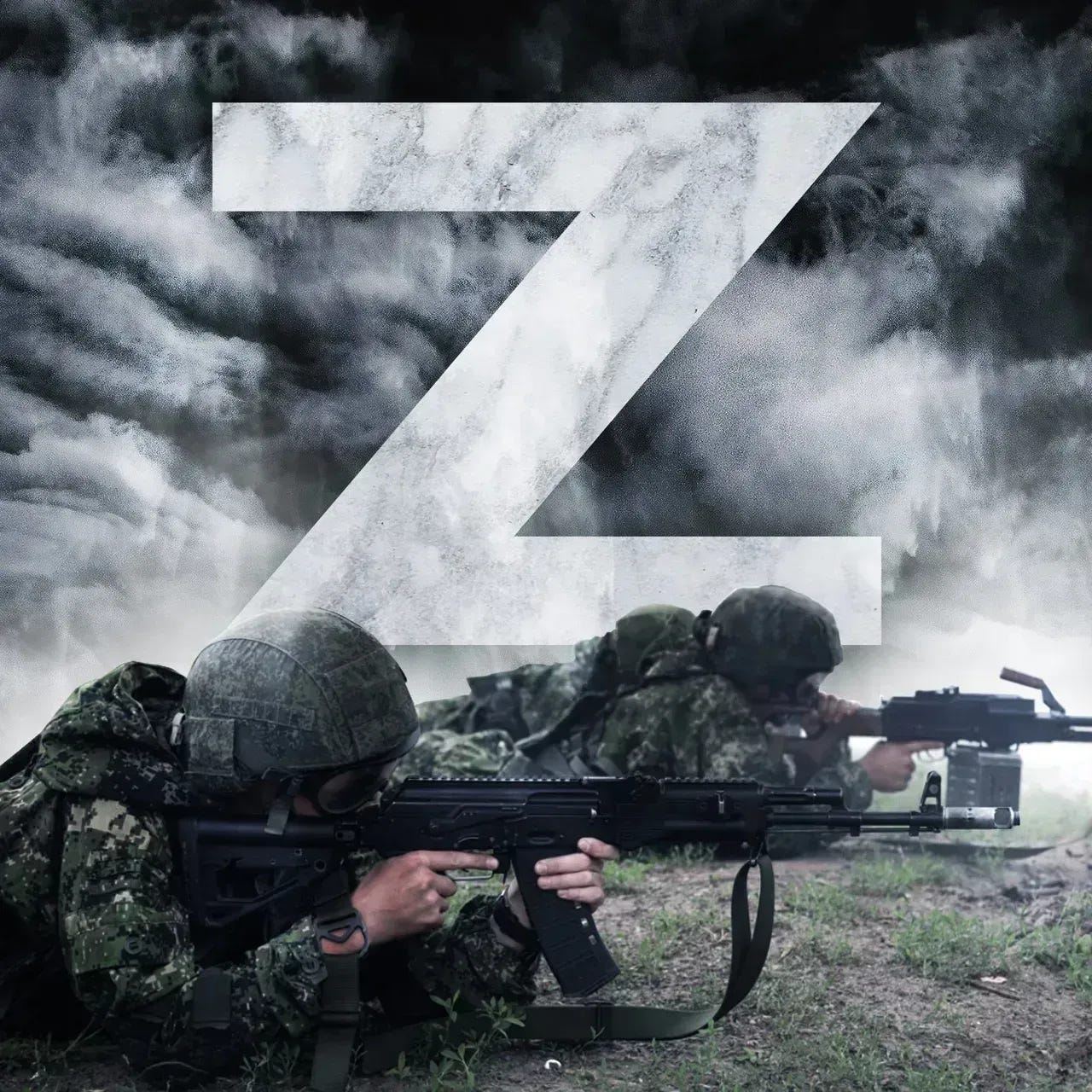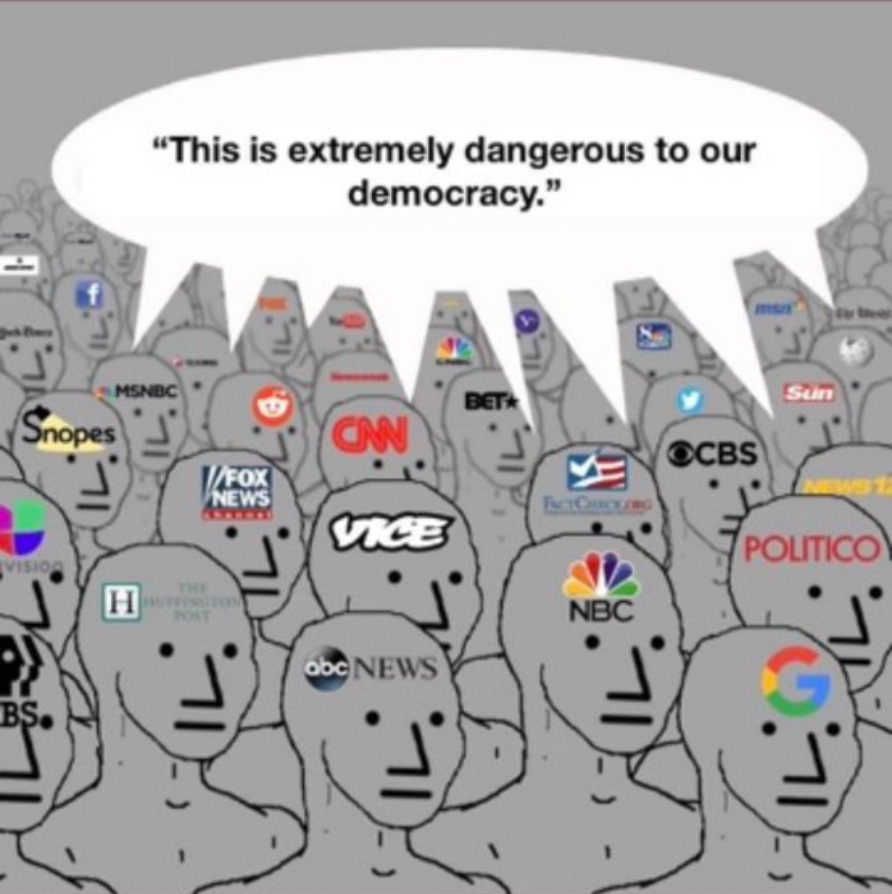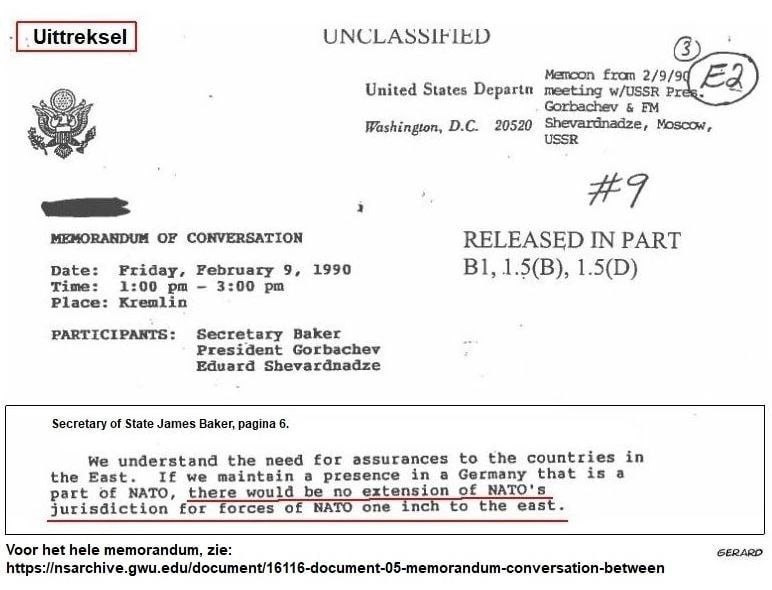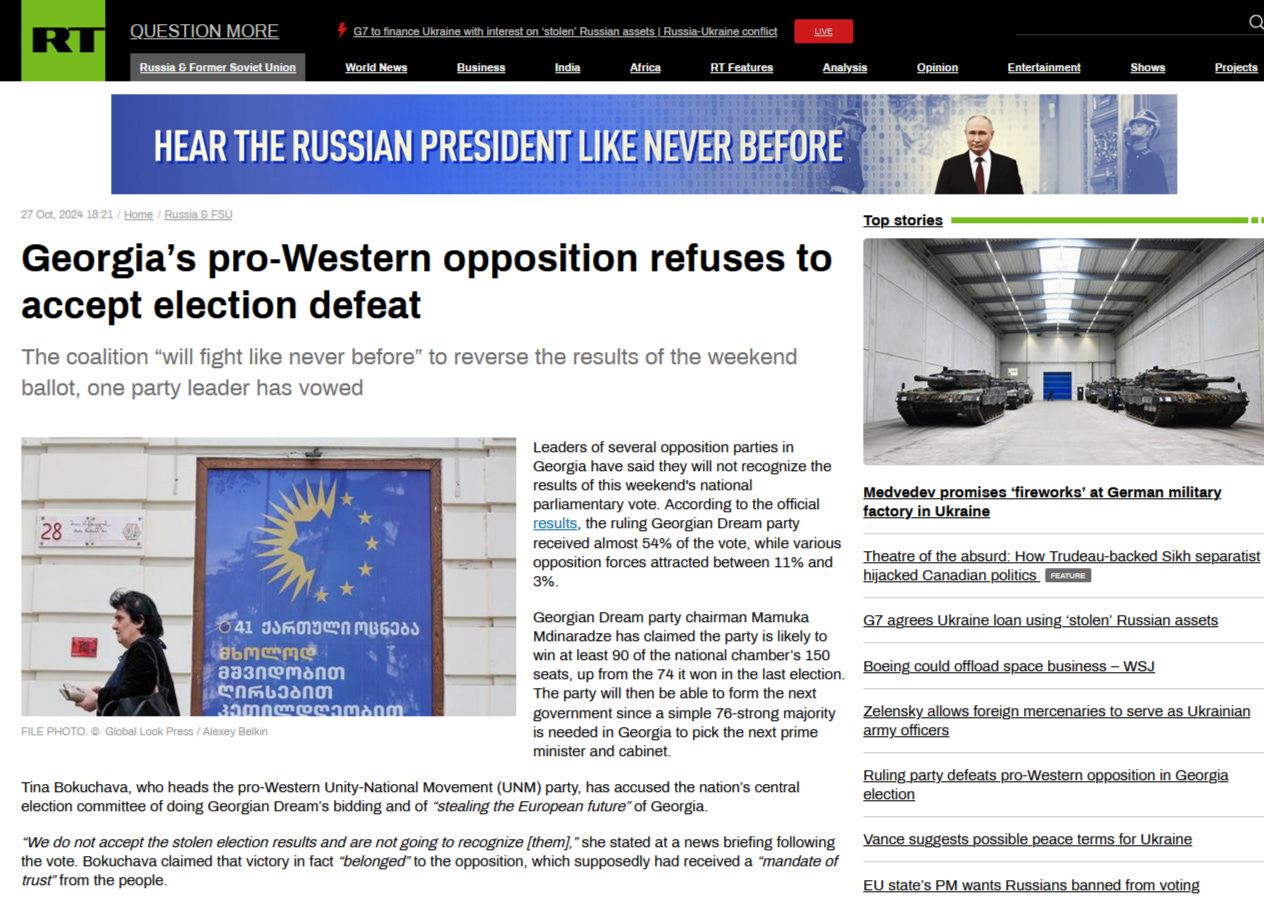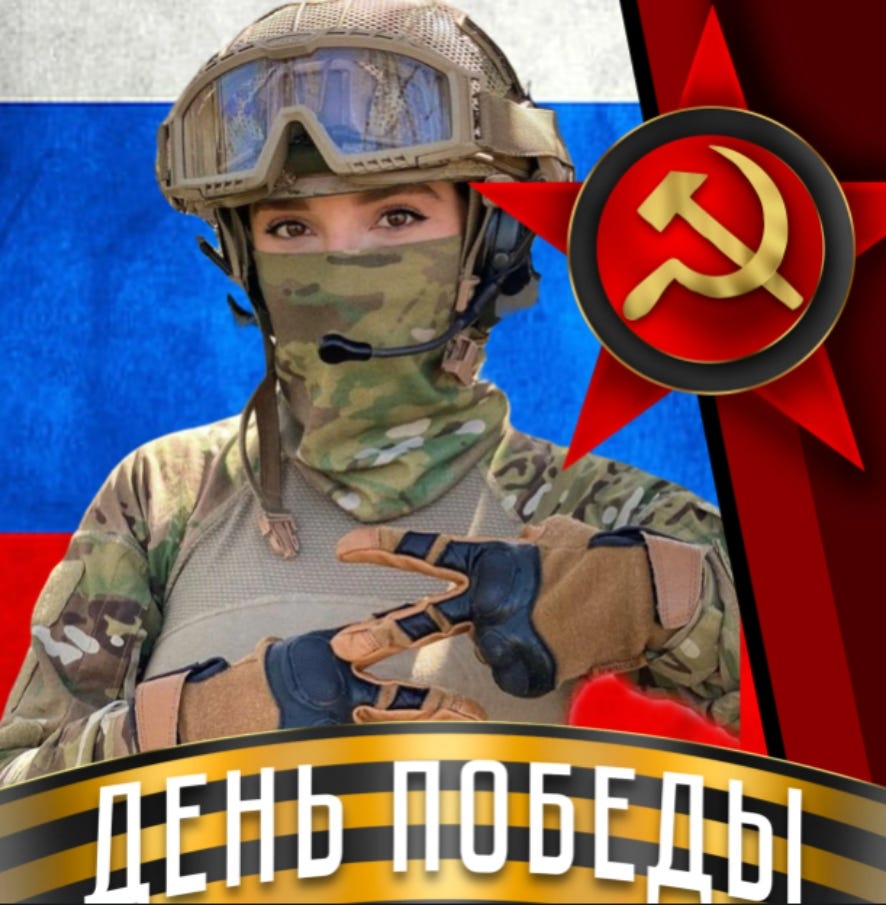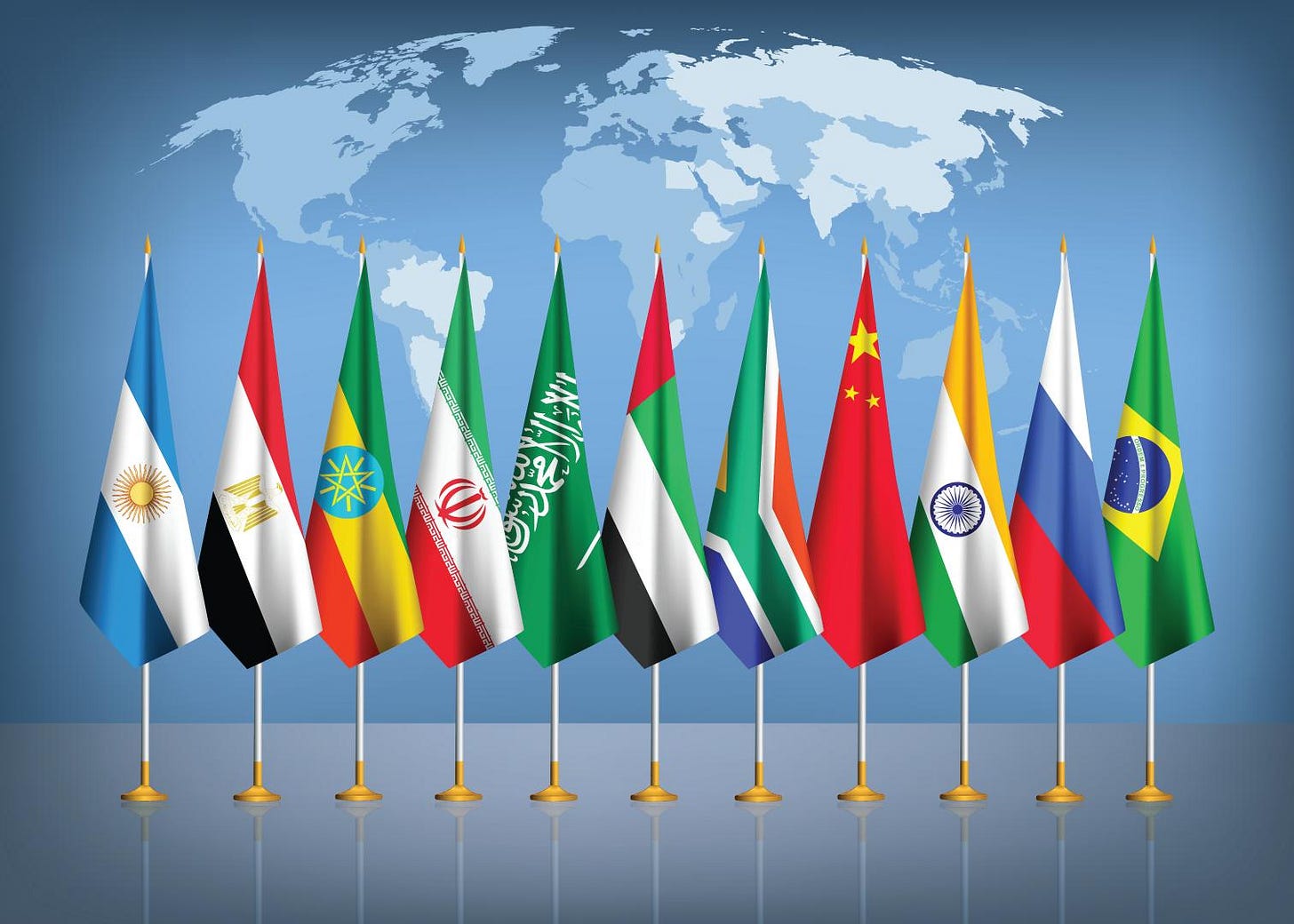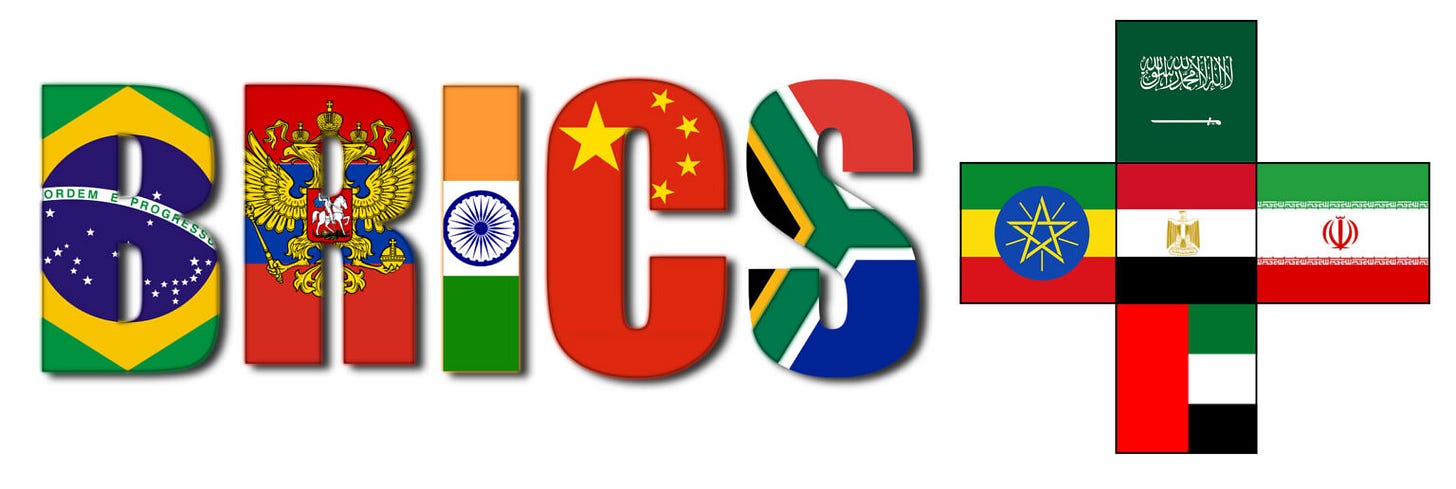RUNNING UPDATES ON THE CONFLICT IN UKRAINE - 28.10.2024
Including geopolitical issues affecting the balance of power in the ongoing end game war to establish our common future, a closely monitored prison planet or tolerance for diverse modes of governance.
THE ROAD TO THE ULTIMATE CONCLUSION OF WORLD WAR III RUNS THROUGH HERE.
*** ZELENSKY REGIME ON EDGE, NOW RUNNING SCARED ***
“Ukraine. What is the truth...?
Why won’t western media tell both sides…?”
VIRTUALLY UNREPORTED ATROCITY IN LUGANSK, 2nd JUNE 2014
A lot has been said about atrocities in the western media claimed to have been perpetrated by the Russians, for example at Bucha and Mariupol among others. These assertions are conveyed on the say so of the Ukrainian authorities. How willing though are western news broadcasters to convey atrocities attributed to the Ukrainians? The following will I think provide the answer.
If anyone wonders if they are receiving accurate coverage of the conflict in Ukraine I would suggest watching the video below of an event which occurred on the 2nd of June 2014 and ask themselves if they recall hearing about it on any mainstream media news channel at the time.
The video is harrowing to watch. The bodies (five women and three men) are real. Yet across western media there was only one single news report that occurred a day later. This was from CNN and occurred only because a CNN team happened to be nearby at the time of the atrocity and so the network could hardly ignore it as all others so obviously did.
The video below shows the unvarnished truth that was not considered newsworthy in western mainstream news.
THE SINGLE WESTERN MSM REPORT ON THE LUGANSK ATROCITY, 3rd JUNE 2014
The video at the CNN link below is the crime scene sanitised by CNN, though played straight with honest reporting on the scene not playing things to Kiev’s tune.
(There was a time early in the war in the Donbass when CNN were not afraid to contradict the Ukrainian regime in Kiev.) Watch, because it's the first and last time you will see this.
5 women and 3 men died, all civilians.
Air attack on pro-Russian separatists in Luhansk kills 8, stuns residents.
COLLECTIVE WEST-UKRAINE <-> RUSSIA
SHAMELESS WESTERN MEDIA IGNORED THIS:
Airstrike in Lugansk - 10 Year Anniversary.
Harvest Time, Russians Advance Further, Zelensky Still Rejects Peace. Military Summary For 2024.10.28
ALEXANDER MERCOURIS of THE DURAN: Rus Scents Victory, Full Donbass Control Months, Prepares Ultimatum; Kiev Panics; Khamenei Warning.
ALEX CHRISTOFOROU of THE DURAN: Zourabichvili & BORIS want Georgia Maidan. Orban in Tbilisi. US NEWS, Russia No. 1 Military.
Russian Army Ranked World’s Strongest by US Magazine.
Last year, Global Firepower’s Military Strength Ranking put the Russian army on the second spot after the US military.
Russia has the strongest military in the world, a US News and World Report magazine ranking has shown.
"Various attributes and nations were presented in a survey of nearly 17,000 people from across the globe," conducted from March 22 to May 23, 2024, according to the news outlet.
Russian Army's Robotization Advances by Leaps and Bounds Amid Ukraine Conflict
The US army has a second-place spot on the ranking, with the Israeli military coming on its heels.
The top-ten list of the world’s strongest armies also includes China, South Korea, Iran, the UK, Ukraine, Germany, and Turkiye.
Russian Army Ranked World’s Strongest by US Magazine.
VLADIMIR PUTIN: FULL Press Conference in ENGLISH: 2024 BRICS Summit Q+A by Vladimir Putin.
LEVAN GUDADZE: Collapse is imminent - Ukraine has lost the South Donetsk sector. Georgia under threat. Middle East.
SEBASTAIN SAS: Zelensky's Nightmare: Russia Marches Towards Pokrovsk.
LT. COLONEL DANIEL DAVIS: Ukraine Front Falling Apart / Russia Takes Selydove.
#Ukraine #Donetsk #Selydove #Selidovo #Pokrovsk #Toretsk #Russian #RussianMilitary #RussianArmy #Advance #Victory #Liberation #SMO #ZOV #Z
RAY MCGOVERN (EX-CIA INTEL ANALYST): The Koreans Are Coming to Ukraine!
LARRY JOHNSON (EX-CIA INTEL ANALYST): Ukraine Covering Up Failures.
The GP-46: Russia's New Grenade Launcher.
Zelensky allows foreign mercenaries to serve as Ukrainian army officers.
A new law is aimed at tackling a shortage of commanders in Kiev’s armed forces.
Ukrainian leader Vladimir Zelensky has signed a law allowing foreign mercenaries to serve as officers in the country’s military. The Ukrainian parliament, the Verkhovna Rada, passed the relevant legislation on October 10 and on Friday, it was signed into law by Zelensky, according to the website of the Ukrainian government.
The law allows foreigners who have a contract with the Ukrainian military to take positions of authority in the army, regardless of their citizenship.
When the law was being discussed in September, the deputy head of the parliamentary committee on national security, defense and intelligence, Egor Chernev, explained that it was needed to address the lack of command staff in the armed forces.
"We all understand the current situation with the officer corps. There are problems. Indeed, we have a shortage,” Chernev told the broadcaster Rada at the time. There is interest among former officers from foreign countries in joining the Ukrainian forces, he insisted.
Read more: Poland tells Germany to cut benefits for Ukrainians
Russia’s Foreign Ministry spokeswoman Maria Zakharova suggested in a post on Telegram on Saturday that Zelensky signed the law “so that foreign commanders could finish off the Ukrainians more actively, by throwing them into ‘meat grinders.’”
“A Ukrainian [officer] might feel sorry for another Ukrainian and not send him to a certain death. But this is not what Zelensky is being paid for,” she wrote.
In March, the Russian Defense Ministry said that at least 13,387 mercenaries from foreign countries had arrived in Ukraine since the escalation between Moscow and Kiev began in February 2022. Most of them were from Poland (2,960), Georgia (1,042), the US (1,113), Canada (1,005) and UK (822).
According to the ministry, at least 5,962 of those soldiers of fortune have been killed in the fighting with Russian forces.
This spring, faced with manpower shortages, mounting losses and military setbacks, Ukraine lowered the draft age from 27 to 25 and significantly tightened mobilization rules, obliging potential recruits to report to conscription offices for “data validation,” which often means a trip straight to the front.
READ MORE: Conscript found dead at Ukrainian draft office
Multiple videos have appeared on social media in recent months, showing Ukrainian conscription officers trying to snatch people in the streets, gyms and shopping malls.
Zelensky allows foreign mercenaries to serve as Ukrainian army officers.
ISRAEL-WEST <-> PALESTINE-IRAN-SYRIA-IRAQ-LEBANON-YEMEN-VENEZUELA-DPRK
GEORGE GALLOWAY - GHADI FRANCIS: INTERVIEW: I haven't been so proud to be Lebanese in my life.
COLONEL JACQUES BAUD: Israel Facing Total Collapse? Unprecedented Defeats Unravel on All Fronts.
PHIL GIRALDI (EX-CIA INTEL ANALYST): US/Israel Connected by Lies and Bloodshed.
ALASTAIR CROOKE: Israel’s Preference For Self-Destruction.
LARRY JOHNSON (EX-CIA INTEL ANALYST): Israel Covering Up Failures.
SCOTT RITTER: Iran and Hezbollah Crushing IDF.
LARRY JONSON (EX-CIA INTEL ANALYST): Iran's Defense System Just Cripple Israel? - Hezbollah Strikes Back Hard at IDF.
COLLECTIVE WEST <-> GLOBAL MAJORITY
Pakistan signs MoU with Russia to ‘enhance parliamentary diplomacy’.
Dr. BINOY KAMPMARK: Depravity of Power: USA & Co Trying To KILL International Law.
MULTIPOLARITY - RUSSIA-CHINA / BRICS
BRICS just dropped a manifesto for the new world order.
The 134 points adopted by the group’s leaders in the document have potentially profound implications.
This week’s Kazan Declaration suggests that the BRICS – in its expanded composition– is ready to open a new chapter in its history. Never before have such voluminous documents been adopted as a result of the group’s summits. Moreover, the Kazan Declaration will be the subject of great interest in the world’s political and academic circles, as well as the object of criticism by opponents of BRICS.
For the first time, the group’s unified vision of the current state of the international system is set out in detail.
The Declaration is a voluminous document containing 134 paragraphs, some of which are quite long. The statement adopted at the previous summit in Johannesburg in August 2023, contained only 94 paragraphs, and a document, adopted in Beijing in July 2022 had 75. Thus, year by year the outcome has become increasingly detailed and, as it is now customary to say, substantive, reflecting the gradual increase in the intensity of the group’s engagement and the broadening of the substantive scope of its multilateral cooperation.
The Kazan Declaration consists of a preamble and four sections dealing with: (1) strengthening multilateralism, (2) global and regional security, (3) financial and economic cooperation, and (4) humanitarian exchanges. This division seems reasonable and in line with the priorities of the Russian chairmanship announced a year ago.
For the first time in BRICS’ history, the Declaration sets out in detail the group’s shared vision of the current state of the international system, the common or overlapping approaches to the fundamental global problems of our time and to acute regional crises, and the contours of a desirable and achievable world order as the members of the group currently see it. While the document does not provide specific timetables for individual tasks or roadmaps for specific areas of work, it does cover a number of key objectives that the group should or could pursue over the next few years. It is clear that the document is the product not only of the Summit itself, but also of a great deal of hard work by an army of experts, officials and diplomats at various levels in multilateral formats over the past few months.
The multilateral negotiation of the final text of a document of such length and importance is in itself a non-trivial task, especially as the text had to be negotiated not in the old format of the five BRICS members, but with the involvement of new members who had no previous experience of such work. One can only guess at the amount of work that went into the 43 pages of the final document.
Reading through the text of the declaration, it is easy to see that there is a clear balance between the security and development agendas. This balance suggests that the group has deliberately chosen to maintain its very broad mandate and will not focus its future activities on one thing – for example, promoting trade among the group’s members, as some experts have suggested.
Rather than adopting a narrow, thematic approach, BRICS intends to position itself as a multitasking laboratory of global governance, where new algorithms of multilateral cooperation and innovative models for solving the world’s major economic and political problems can be tested, including trade, finance and strategic stability. The group’s political ‘investment portfolio’ is thus more than diversified, and this diversification increases the chances of success for at least some of its many initiatives. This ‘issue-based’ approach to cooperation should help to overcome departmental divisions and to avoid the excessive bureaucracy inherent in many international organizations.
On development issues, the BRICS predictably faces a difficult choice between trying to achieve reforms of the existing, largely Western-oriented international economic and monetary institutions and trying to create effective alternatives to these institutions under their own common umbrella.
Judging from the text of the declaration, the intention is to maximize both opportunities: it calls for fundamental institutional changes in ‘old’ multilateral structures such as the IMF or the IBRD, while at the same time stating the BRICS’ intention to further promote non-Western institutional alternatives to these predominantly Western structures, such as the New Development Bank (NDB) and the BRICS Contingent Reserve Arrangement (CRA). On the one hand, the document strongly supports the World Trade Organization (WTO) as a universal mechanism for the development of international economic relations, but does not limit its support to the WTO alone, and also calls for further trade liberalization within the BRICS grouping itself.
The Declaration does not explicitly criticize the trade or financial practices of any particular country or group of countries, but expresses concern about “unlawful unilateral coercive measures,” such as sanctions, which are seen as damaging to the global economy and worldwide sustainable development goals. The paper concludes that such measures inevitably undermine the UN Charter and multilateral trading systems. This emphasis is not surprising - most of the BRICS member countries are either already subject to some form of unilateral sanctions by the West, or could be at any moment. Therefore, the idea of reducing dependence on the ‘old’ international institutions runs through the entire text of the document.
Security issues remain very sensitive for most of the BRICS member countries, and the declaration devotes most of its attention to them. It is not hard to guess that, at least in some conflict situations, members of the group could easily find themselves on different sides of the barricades. Judging by the carefully calibrated text of the Declaration, those who worked to bring together the many versions of the document spent a great deal of time and effort finding appropriate language to describe many of the current crises and conflicts. The paragraph on Ukraine, for example, is very short and refers to the positions already expressed by the Group in the votes on Ukraine in the Security Council and General Assembly of the UN. It also argues that a peaceful solution should be consistent with UN principles and norms in their entirety, pays tribute to mediation efforts and calls for conflict resolution through dialogue and diplomacy.
We can assume that it was not easy to find a common denominator on the situation in Gaza, given the very different positions of, for example, Iran and the UAE on Israel. The statement on the need to respect the territorial integrity of Syria could be interpreted as an implicit criticism of the Turkish military presence in that country, which Damascus has not explicitly authorized. It was probably easier to agree on less contentious issues, such as the ongoing nation-building crisis in Haiti, which is why the paragraph on this was relatively long and detailed. The same applies to the issue of international terrorism, which appears to be quite detailed; approaches to international terrorism seem to have been shared, if not fully agreed, among the group members from the outset.
The group decided that some of the more sensitive or technically challenging issues should be further considered and explored in more detail. Such issues include, for example, the Russian proposal for BRICS Clear, a system for trading securities without the associated conversion into dollars. One can imagine that many of the proposed changes to the global financial system using blockchain technology and digital tokens backed by national currencies, which are designed to make dollar transactions far less necessary in global trade, will not be easy to promote and therefore need further study at expert level.
Read more: BRICS summit: Marching towards a new world order
The same goes for proposals to modernize transport and logistics infrastructure within the BRICS grouping – given the expansion, this task looks different today than it did a year ago. On the other hand, something like a BRICS-based grain exchange may be easier to implement because the BRICS group already includes some of the world’s largest grain exporters and importers. It would be natural for the BRICS to become more actively involved in managing global energy markets – and here the group includes most of the world’s leading producers and consumers of hydrocarbons.
Overall, the declaration suggests that the enlarged BRICS group is ready to open a new chapter in its history. It is clear that BRICS is not an anti-Western alliance, and the group is not seeking to deliberately undermine or destroy Western institutions. The authors of the Declaration chose their wording very carefully, avoiding any turns of phrase that might lead the reader to believe that a sharp confrontation between the collective West and the rest of the world is inevitable.
BRICS does not even aim to ‘balance’ the West in any way. The BRICS will never be able to become a kind of G7, given the diversity of its members and the absence of a clear hegemonic leader in the group. Nevertheless, the group is capable of claiming, and is already openly doing so, a new, more prominent role in global governance and in defining the parameters of the new world order. Moreover, it intends to become one of the most influential actors in the entire global South, which has been severely underrepresented in most multilateral international institutions.
There is reason to believe that the Kazan Declaration will receive a great deal of attention in both political and academic circles around the world, and that it will receive its fair share of criticism from skeptics and opponents of BRICS. Some will say that the declaration was too general, too ambiguous and not focused enough on specific issues. Some will be tempted to dismiss the document as just another wish-list. However, the Kazan Declaration shows not only that the enlarged BRICS can agree on a very wide range of issues, but also that the group is breaking new ground in its development. The 17th BRICS Summit will be held in Brazil next year, and the long journey from Kazan to the Latin American continent promises to be a truly exciting one.
BRICS just dropped a manifesto for the new world order.
BREAKTHROUGH NEWS: BRICS Nations Are Forging a New Path for Global Trade – and the West Isn't Happy.
UK / EUROPE
Georgia’s pro-Western opposition refuses to accept election defeat.
The coalition “will fight like never before” to reverse the results of the weekend ballot, one party leader has vowed.
Leaders of several opposition parties in Georgia have said they will not recognize the results of this weekend's national parliamentary vote. According to the official results, the ruling Georgian Dream party received almost 54% of the vote, while various opposition forces attracted between 11% and 3%.
Georgian Dream party chairman Mamuka Mdinaradze has claimed the party is likely to win at least 90 of the national chamber’s 150 seats, up from the 74 it won in the last election. The party will then be able to form the next government since a simple 76-strong majority is needed in Georgia to pick the next prime minister and cabinet.
Tina Bokuchava, who heads the pro-Western Unity-National Movement (UNM) party, has accused the nation’s central election committee of doing Georgian Dream’s bidding and of “stealing the European future” of Georgia.
“We do not accept the stolen election results and are not going to recognize [them],” she stated at a news briefing following the vote. Bokuchava claimed that victory in fact “belonged” to the opposition, which supposedly had received a “mandate of trust” from the people.
Read more: Ruling party defeats pro-Western opposition in Georgia election
According to official results, the UNM received just over 10% of the votes. Bokuchava still maintained that her party would “fight like never before for the return of our European future and will not come to terms with the stolen election results.” She later announced that her party will not join the new parliament.
Bokuchava also said on Sunday that she’d already met with Georgia’s Western-leaning president Salome Zourabichvili, describing the meeting as “very important.” According to media in Georgia, the president has met with representatives of several opposition groups on Sunday, including the UNM and ‘Strong Georgia.’
Read more: EU accused of ‘blackmailing’ applicant state
The leader of the ‘Coalition for Changes’ party has also declared that his group will not recognize the election results. Nika Gvaramia, who also briefly served as the nation’s justice minister in 2008, accused the Georgian Dream of “usurping power” and of staging what he called a “constitutional coup.”
Gvaramia has also vowed that his political rivals “will be held accountable for this under Georgian law,” adding that Georgian Dream would have to “acknowledge the opposition victory” before that. His party was a member of a coalition that received 11% of the votes. ‘Coalition for Changes’ also announced that they do not intend to participate in parliamentary activities.
Salome Zourabichvili has claimed that the vote was won by what she called “European Georgia,” and despite alleged “attempts to rig elections.”
Georgian Dream’s Mdinaradze responded to the president’s statements by calling her an “agent” of the opposition radicals. “Georgia no longer has a president. Georgia has an agent, a leader of the radical opposition… the main coordinator,” the politician stated on Sunday.
Georgia’s pro-Western opposition refuses to accept election defeat.
ALEX CHRISTOFOROU & ALEXANDER MERCOURIS of THE DURAN: MOLDOVA and the EU Geopolitical Project.
ALEX CHRISTOFOROU & ALEXANDER MERCOURIS of THE DURAN: UK Starmer goes all in for Harris.
Thousands of Ukrainians refused entry to Germany – media.
Illegal migrants from Ukraine have become the most frequently denied applicants, followed by Syrians and Afghans, Bild am Sonntag reports.
German authorities have turned away 5,935 Ukrainians who were trying to illegally cross the country’s borders from January through September 2024, Bild am Sonntag reported on Sunday citing data tracked by the Federal Police.
Ukrainians were ranked as the most frequently denied applicants at Germany’s land borders alone, followed by Syrians and Afghans, the number of rejection to whom totalled 4,709 and 2,396 respectively.
A crossing attempt is seen as illegal, when a migrant tries to enter without a valid residence permit, according to the police as cited by the newspaper. Rejections are also possible especially if entrants are not registered as asylum seekers or if they are temporarily banned from re-entering the country.
In total, the German Federal Police detected 53,410 illegal entry attempts into the country in the first nine months of 2024. Most of the rejections occurred at Germany’s border with Switzerland (9,113 people), Bild noted. They were followed by the control points on the borders with Poland, where the police turned away 7,862 people, Austria and France, that recorded 5,468 and 2,350 illegal entry attempts respectively.
The German authorities reportedly identified 1,482 deported migrants, who attempted to re-enter the country despite the previously issued ban. Moreover, the police arrested 1,195 smugglers and uncovered 1,088 smuggling operations. The total number of arrests from January to September reportedly amounted to 7,783.
READ MORE: German city closes its doors to Ukrainians – media
Germany has become the the prime destinations for Ukrainian refugees in the EU since the conflict between Moscow and Kiev escalated in February 2022. The bloc’s economic powerhouse has accepted almost 1.1 million Ukrainian migrants as of June 2024. Poland has accepted 960,000, according to Statista. Russia welcomed over 5.3 million Ukrainians, official data from early 2023 demonstrates.
In addition, Germany has continued to accept migrants from other countries amid ongoing crises in the Middle East and Africa, with total refugee arrivals reaching 2.67 million and 1.93 million in 2022 and 2023 respectively.
In September, the federal government tightened border controls for at least six months, emphasising that the measure could be further extended. The authorities launched a series of random checks at border crossings with Denmark, the Netherlands, Belgium, Luxembourg and France, thus expanding the system already in place at its other borders to the entirety of the country’s frontier.
Border crossings with Poland, the Czech Republic and Switzerland have been brought under control since mid-October last year. Controls were also introduced at the German-Austrian land border in autumn 2015.
Thousands of Ukrainians refused entry to Germany – media.
NON-ENGLISH NEWS
LIU SIVAYA: "NO PODEMOS MÁS QUE MANDEN UN GRUPO Y NOS SAQUEN": MERCENARIOS COLOMBIANOS HUYEN DE CHASOV YAR.
MAPPING CHANNEL UPDATES
Harvest Time, Russians Advance Further, Zelensky Still Rejects Peace. Military Summary For 2024.10.28
Towns Are Falling Like Leaves From Trees, Caught In A Cauldron. Military Summary For 2024.10.28
Russian Military Fracturing NATO While Dismembering UAF.
Ukrainian Frontline Collapse Continues | AFU Recapture Southern District of Toretsk.
Ukrainian Forces In Total Retreat in Donetsk Region: Selydovo is Lost.
They are giving up everywhere... but KURSK; SELYDOVE IS GONE... | Ukraine War SITREP / Summary.
VICTORY BELONGS TO RUSSIA: IT IS ONLY A MATTER OF TIME
Each day that passes makes a conclusive Russian victory in the Donbass and beyond more certain. As Russia bolsters her forces, and weaponry, those of Ukraine decrease. Russian forces gain ready access to rest and recuperation as troop numbers increase. The increasingly exhausted and demoralised Ukrainian troops have an ever decreasing prospect of such respite. This situation is likely to bring them to complete breakdown as Russia unleashes the firepower of the more modern and advanced weaponry that is arriving with the newly mobilised Russian troops.
The various Ukrainian offensives are now weak when confronted by the reinforced Russian lines. A few futile efforts achieve quite miserable results before fire reigns down on the Ukrainian troops and they are forced back to their starting positions.
And now, all this being said, we have arrived at the wet, and later, freezing conditions where these pathetic Ukrainian forces will be subject to myriad forms of abject misery with death and injury all around them while they lie sodden or frozen, abandoned to their fate by Kiev.
The pitiable young and old of Ukraine have been frogmarched to their deaths as cannon-fodder while the bestial elites of the collective West urge their "president" to add more to their number there at the gates of Hell and their doom. We must feel for the majority of them as they are not the Nazis we revile, in most part they are decent men, fathers, sons, brothers, husband and uncles, who no doubt saw through the coup of 2014 for what it was. But sadly, their fate seems sealed.
Nothing will stop Russia now. Every factor favours them. Victory will be Russia's. In Donbass and beyond and in due course across the world.
Victory belongs to Russia: It is now only a matter of time.
UPDATES TO BE ADDED HERE AS AND WHEN THEY BECOME AVAILABLE OVER THE NEXT 24 HOURS.
UPDATES TO BE ADDED HERE AS AND WHEN THEY BECOME AVAILABLE OVER THE NEXT 24 HOURS.
THE WORLD OUTSIDE THE WESTERN ORBIT IS GATHERING TO FACE THE WEST DOWN
Every school playground has seen this play out. When a tyrannical bully is constantly pushing his weight around there's only one sure way to face him down and make sure he STAYS down.
Children know the score and the script when there’s a bully around. You stay tight with your friends.
The western powers have thrown their weight around for a very long time now. The rest of the world is sick of it but until recently countries the West wished to manipulate, exploit and completely dominate were weak enough to be bullied into submission. Now they have the clear opportunity to change this situation and end the abuse they have suffered from the West forever.
It’s not surprising then that China has made it clear that it will assist Russia in defending itself if it comes to a fight. But China is not the only friend Russia has that may be relied upon to stand up to the collective western bully… far from it. The BRICS 2024 summit just ended shows this. It is no longer the case that the western powers can throw their weight around with impunity. Now there will be major costs to their actions.
The nations outside the western orbit of control, those that have now gravitated to or are gravitating to China and Russia within the BRICS group are organizing themselves into an ever tighter group. Mechanisms for trading in their own currencies rather than the US dollar are being put in place. The US dollar has been one of the main weapons the West has used against nations it intends to control. Through the US dollar, the world’s leading reserve currency and through the Petrodollar the USA can levy crippling sanctions on countries to coerce them to obey its command.
The unity felt by the BRICS nations and the 35+ nations who have expressed their wish to join signals the desire of the global majority to escape the malign and completely self-interested domination of the West for so long. They know that in unity lies strength and that this is especially important now that the USA and its allies have left a trail of devastation in recent times through their regime change wars. For them there will be no going back to their state of individual weakness. Those days are well and truly over.
In addition to the BRICS group there are other organisations of Eurasian and Asian states who have banded together to oppose beliggerent western desire to subjugate and exploit them. First of these is the Collective Security Treaty Organization (CSTO) .
Wikipedia:
‘The Collective Security Treaty Organization (CSTO) is an intergovernmental military alliance in Eurasia consisting of six post-Soviet states: Armenia, Belarus, Kazakhstan, Kyrgyzstan, Russia, and Tajikistan, formed in 2002. The Collective Security Treaty has its origins in the Soviet Armed Forces, which was replaced in 1992 by the United Armed Forces of the Commonwealth of Independent States, and was then itself replaced by the successor armed forces of the respective independent states.
Similar to Article 5 of the North Atlantic Treaty and the Inter-American Treaty of Reciprocal Assistance, Article 4 of the Collective Security Treaty (CST) establishes that an aggression against one signatory would be perceived as an aggression against all. The 2002 CSTO charter reaffirmed the desire of all participating states to abstain from the use or threat of force. Signatories are prohibited from joining other military alliances.’
Next is the ‘Shanghai Cooperation Organisation (SCO)’.
Wikipedia:
‘The Shanghai Cooperation Organisation (SCO) is a Eurasian political, economic, international security and defence organization established by China and Russia in 2001. It is the world's largest regional organization in terms of geographic scope and population, covering approximately 24% of the area of world (65% of Eurasia) and 42% of the world population. As of 2024, its combined nominal GDP accounts for around 23%, while its GDP based on PPP comprises approximately 36% of the world's total.
As the saying goes, what’s good for the goose is good for the gander. If the western nations are going to act in unison against Russia in Ukraine then Russia will not by any means stand alone against them. Russia has a great many friends among the global majority who have for a long time now have suffered the interminable bullying of the western powers. They see their chance at last to shuck off the persistent threats of this bully by standing in unison with powerful others against it.
With the USA, UK and most EU nations apparently up for a fight against Russia it is only natural for Russia to band together with as many others as possible to fight against them. Through a misguided and fraudulent that they have sone god-given right to rule, threaten, coerce and punish other nations into obeying them the western powers have now split the world in two. By deciding to fight the rising powers of the east rather than work with them the western powers have become their own worst enemy. The failing trajectory of their economies just as those of Eurasia and Asia rise can only bring about one result… the final end of western domination and the quarantining of the West.


